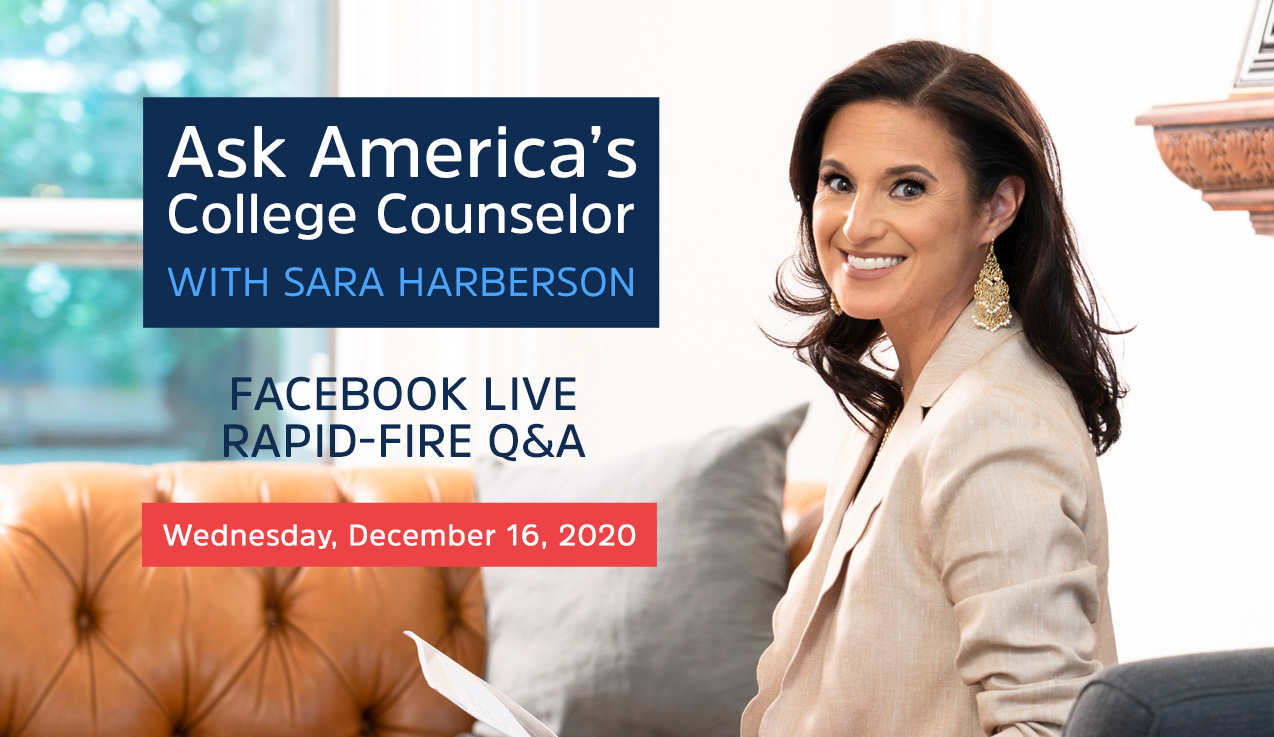There is a lot of second-guessing and panicking going on right now. Students are wondering if submitting a test score, a high one at that, disadvantaged them in the early round of applications. Just as many are wondering if they should have submitted test scores, even low ones. And the number of questions I am receiving about Early Decision 2 programs is shocking considering very few students have actually seen that Early Decision 2 college in the flesh.
Before you make significant changes to your plan, take a moment to reflect on yourself and this process. Your initial instincts are usually spot on.
1. Never (ever!) will sending in high test scores hurt a student in the admissions process.
I know that students are gathering data on everyone in their class who applied to their early choice. They seem to have an accurate list of who submitted test scores and who didn't. But just because the data seems to suggest a trend at your high school doesn't mean it was consistent across the board. When a student with super high test scores doesn't get admitted to a highly selective college, it can mean one of two things: something else in their application was not nearly as "high" as those test scores or, more likely, it can simply mean the competition to get into that college is absolutely mind-boggling.
2. Applying without test scores doesn't disadvantage you in the admissions process as long as everything else in your application meets the very high standards of that college.
Those students who got borderline SAT or ACT scores are wondering if they should take a chance and submit them to their Regular Decision choices. I would only do that if the scores meet the middle 50% range of admitted students from that college last year. Remember, being test optional means that a student has the option to not share test scores—whether they never had a chance to take these tests or they aren't happy with the scores they got.
RELATED READING: 10 College Admissions Changes in 2020 to Celebrate
3. Early Decision 2 programs will be very popular (hint: really competitive) this year.
Colleges like Vanderbilt, Emory, Washington University, University of Chicago, and other highly selective universities with ED2 programs will most likely see an increase in their pool. Be sure you have visited that ED2 college. Be sure you love it. Be sure you know that everything in your application is near-perfect to apply to one of these programs.
READ MORE: 10 Essential Facts About Early Decision 2
4. Thanks to colleges like Harvard that deferred 80% of their Restrictive Early Action pool, we have a lot of students wondering what their chances are in Regular Decision.
The acceptance rate for deferred applicants is almost always very similar to the acceptance rate for Regular Decision applicants. While most colleges won't provide a breakdown of acceptance rates between their early round and Regular Decision round, a college like Harvard has an acceptance rate in the low single digits in Regular Decision. This year will be no different. It's important to make sure you have other colleges on your list that you like and you know you are competitive for.
5. If a student tells me they aren't excited about a target or likely college on their list it is usually because they haven't spent much time researching that college.
Give those target and likely colleges their moment. Research them. Take a look at their websites. Imagine going there—just like you did for that college that may have denied or deferred your application. If not, you have written them off already. You wouldn't want a college to do that to you.
Related Reading: Parents and Students, I Have One Piece of Advice For You
I see what the colleges have done in this early round. It has made our students doubt themselves more than ever. Do not let fear dictate this process. Embrace who you are right now. Embrace colleges that will value you right now. Embrace the college, not its name or reputation. When that happens, you will find a place where you can shine.












